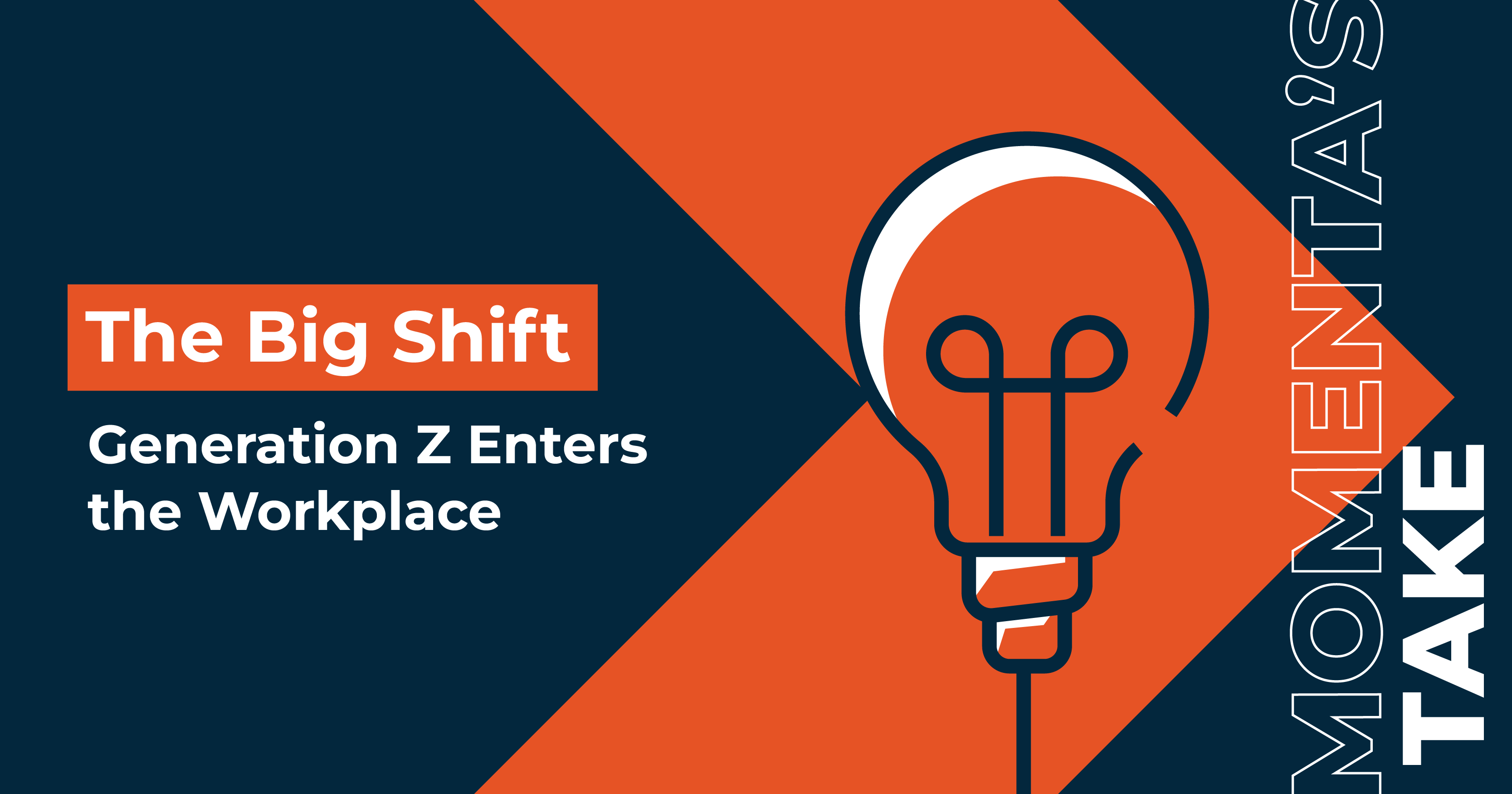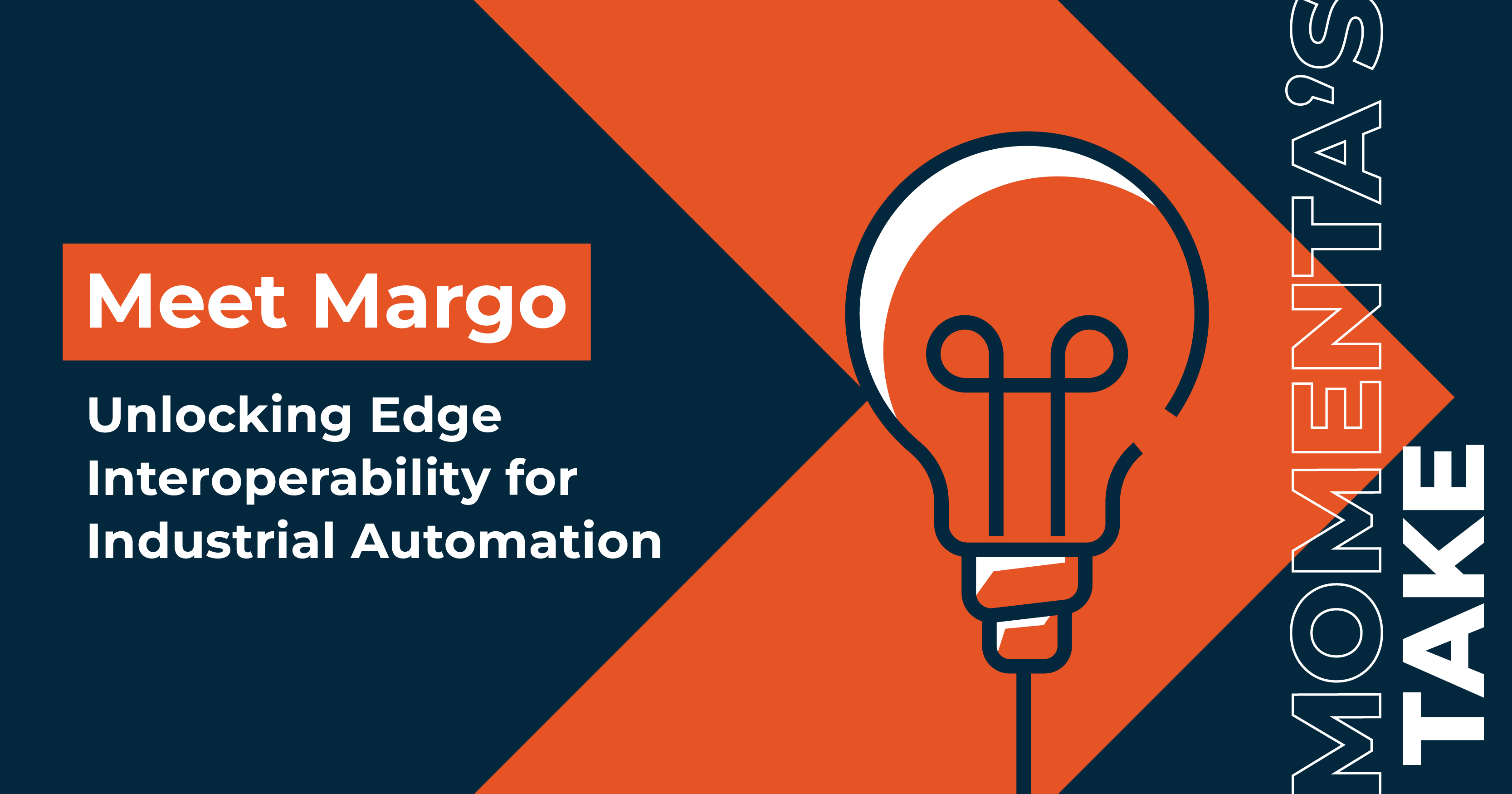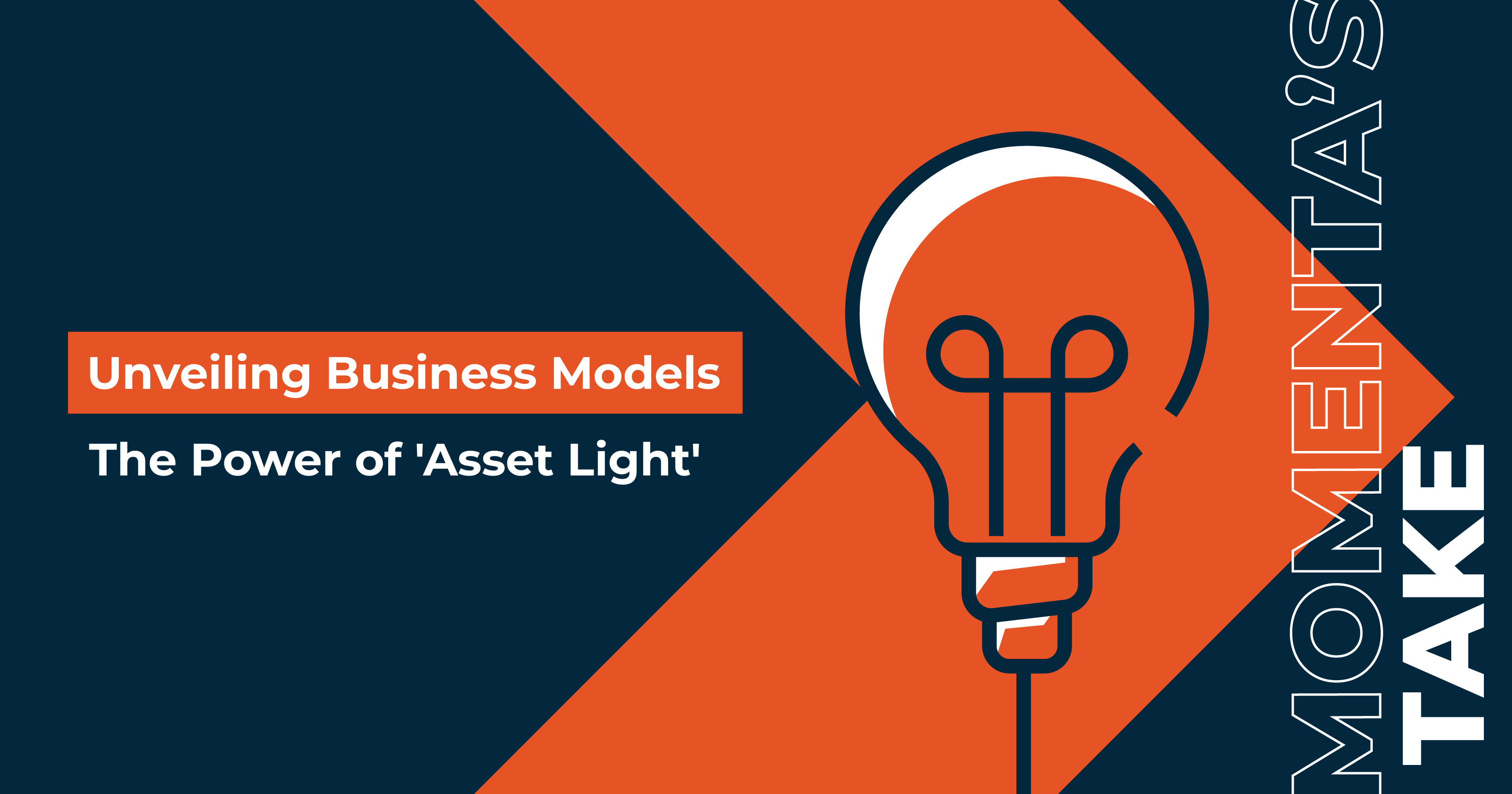Momenta's Take: Generation Z
Ken Forster

The Big Shift – Generation Z Enters the Workplace
Western economies are seeing a historic transformation as waves of baby boomers retire and younger generations take their place. This demographic shift will have profound implications for the future of work as well as for employers, workers, and policymakers.
Boomers Leave the Workforce
Baby boomers (typically defined as the cohort born between 1946 and 1964) have significantly influenced the economy and society. As of 2021, Baby Boomers constitute about 25% of the U.S. workforce, but they are retiring at a rate of about 10,000 per day – this despite findings that almost half are working past the age of 70.
The U.S. labor force participation rate declined from 66% in 2008 to 61% in 202,1, and the Bureau of Labor Statistics projects that it will drop further to 56% by 2050. Today, the number of retirees is surging at a remarkable pace, outpacing the influx of new workers. As a result, the supply of workers is dwindling while demand for labor remains high. This trend leads to an unparalleled aging of America’s population, bringing about significant transformations in the workforce, economy, and the global mobility industry.
Passing the Baton to Gen Z
Generation Z (born between 1996 to 2010) workers are expected to make up 27% of the workforce in OECD countries by 2025, which is likely to increase as Boomers retire and more reach working age. A recent analysis by Glassdoor finds that in 2024, Gen Z workers are expected to overtake Baby Boomers in the full-time workforce. Gen Z is already distinguished as being the most educated generation, with 59% of Gen Zers attending college compared to 53% of millennials.

Source: https://www.purdueglobal.edu/education-partnerships/generational-workforce-differences-infographic
Gen Z Brings New Expectations to the Workforce
For leaders, recruiting, managing, retaining, and cultivating Gen Z talent must address the changing expectations younger workers bring to the table. A multi-year study by Roberta Katz (former senior research scholar at Stanford) identified what most matters to Gen Z and why. Gen Z has unique characteristics, challenges, and opportunities distinct from previous generations. Some of the key findings include:
- Comfortable with Change – Having grown up surrounded by technological and social change, Gen Z is accustomed to disruption and impermanence and regards this as the norm.
- Pragmatic – Having grown up with access to search engines that enable immediate access to the world’s information, Gen Z is not afraid to question how and why things have been done a certain way and is motivated to challenge the status quo.
- Making a Difference – Gen Z workers are motivated to make positive changes in the world, to “do well by doing good.”
- Valuing Collaboration and Teamwork – Growing up with access to social media has enabled Gen Z to seek out like minded friends and colleagues to create unique subcultures – which value collaboration and teamwork.
- Valuing Leadership by Consensus – Gen Z workers tend to be less hierarchical than prior generations, seek leadership based on expertise on the task at hand, and prefer consensus-based decision-making.
- Prioritize Work-Life Balance – With the rise of flexible work arrangements that blur the boundaries of the traditional 9-to-5, Gen Z workers value balance and maintaining mental and physical health.
- Different Sense of Loyalty – With the rise of gig work and mass layoffs across the economy, Gen Z reflects the expectation that workers do not stay with a single company for their entire careers. Only 3% of millennials plan on staying with their current job for their entire career.
According to an analysis by BuiltIn, even though they are the most technologically savvy generation, the vast majority (72%) of Gen Zers prefer face-to-face communication in the workplace over email or instant messaging. In fact, 60% prefer to have several check-ins with management throughout the week, and 40% prefer for those interactions to happen daily. Workers will increasingly find themselves in multi-generational environments, presenting both challenges and advantages. Nearly half (49%) of employers have three generations working together — Baby Boomers, Generation X, and Millennials, with Gen Z increasingly entering the workforce.
Gen Z – Different but in Many Ways Similar
Millennials and Gen Z workers are accustomed to rapid technological advancements and expect a workplace that reflects this reality. While there are many differences between Gen Z and older generations, similarities prevail in many ways, according to research from McKinsey. Flexibility, work-life balance, and opportunities for growth and development are paramount to attracting and retaining Millennial and Gen Z talent.
Leaders must adapt their leadership styles to accommodate often shifting expectations. Transparency, inclusivity, and collaboration are key tenets of effective leadership. Leaders who embrace these principles foster a culture of trust and empowerment, enabling employees to thrive in an environment that values their contributions and supports their professional growth. At Momenta, finding and securing talent equipped to lead innovative companies in Digital Industry remains paramount – while technology defines the future, the people are the most valuable assets of any business.

Momenta is the leading Industrial Impact venture capital firm, accelerating digital innovators across energy, manufacturing, smart spaces, and supply chain. Our team of deep industry operators has helped scale industry leaders and innovators to improve critical industries, the environment, and people's quality of life for over a decade.


